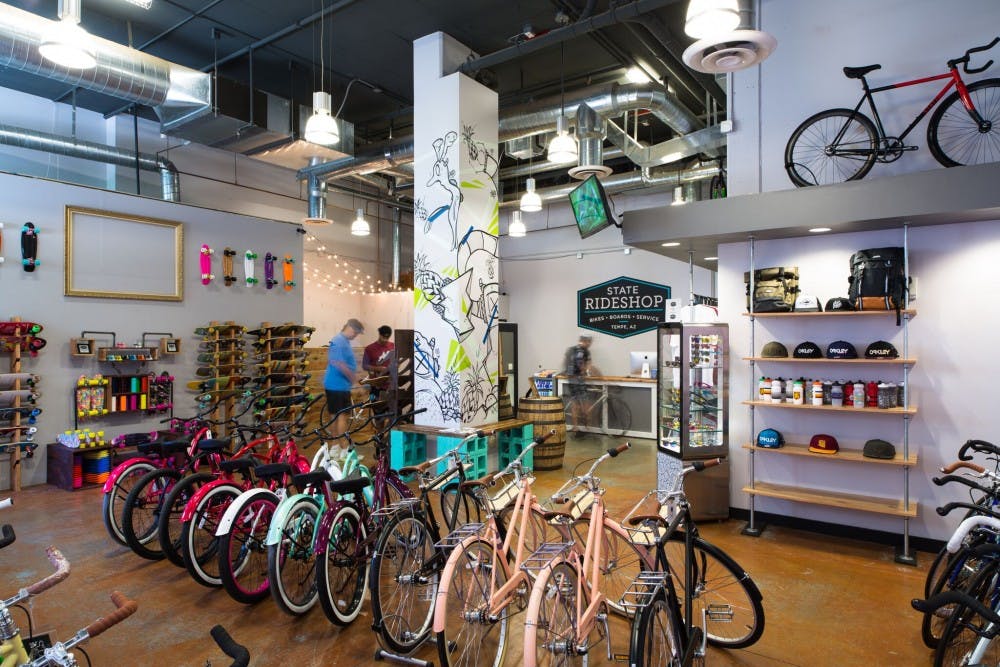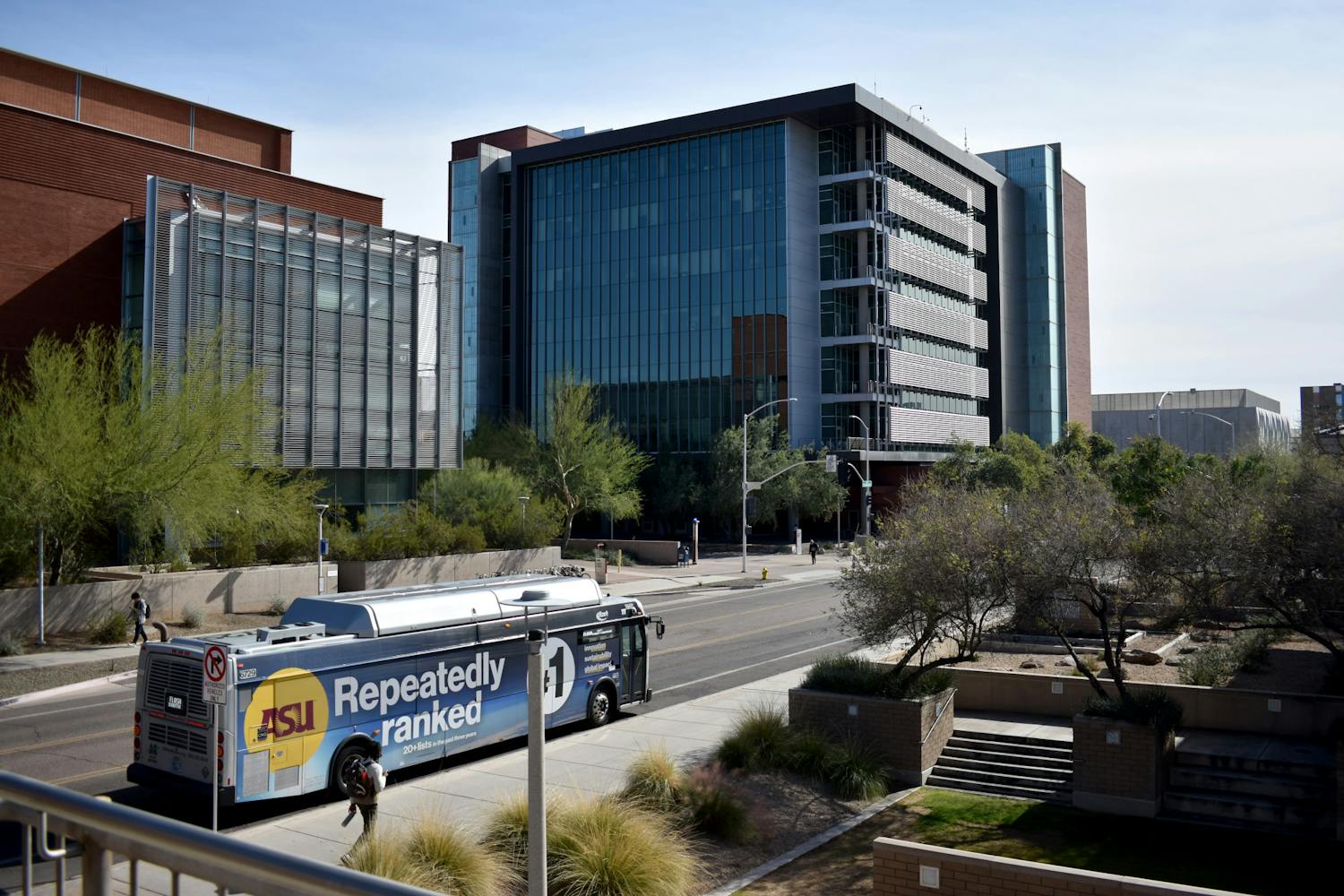Located off Apache Boulevard and Rural Road, the State Rideshop began with three former students wanting to make a difference in the cycling community.
The first impression of the State Rideshop includes skateboards covering the walls and bicycles lining the floors. Bright blue cinderblocks accent the graffiti walls.
Mehdi Farsi, co-founder of State Rideshop and State Bicycle Co., opened the shop Aug. 1, 2016 with ASU alumni Eric Ferguson and his brother Reza Farsi. As alumni, they said they understand the hassle of transportation in such large a campus. ASU's Tempe campus is 661 acres, making skateboards and bicycles a necessity for students.
Farsi's job focuses on the marketing and merchandising of the products.
“Riding around Tempe, being a part of the cycling community has always been something that we’ve been involved in,” Farsi said.
However, they didn’t start out with State Rideshop. Originally, they had State Bicycle Shop located in Phoenix which specialized only in bicycle products.
“We had that shop for about three years. Our lease came up, and we always knew we wanted to be in Tempe, close to where ASU is, close to where a lot of our customers are,” Farsi said. “We found the right spot that we thought was a perfect fit. So we jumped on it.”
The change in name spurred from a change in merchandise. They still sold bicycles, but they made the store a hybrid between bikes and skateboards. They got the idea simply by talking to their customers.
“Not too long ago, we were in the same place as our customers,” Farsi said. “With so many students on campus, parking is getting more and more expensive, and it’s getting harder and harder to find a spot, and the campus is getting bigger and bigger. It’s challenging especially if you don’t have a bike or skateboard.”
Farsi explained that their shop differs greatly from big brands like Target or Walmart, appealing directly to the college student.
“Someone who understands you, understands your budget will be able to work with you one-on-one,” Farsi said. “We take the time to find the bike that will meet your needs or a skateboard to meet your needs.”
Farsi offered some insight into bicycle theft and the ways that the police and State Rideshop can help students.
If a someone steals a student's bicycle, the State Rideshop offers a stolen bike policy, giving students $100 off any bike in the shop if they can provide proof that their bike was stolen.
ASU Police reported approximately 400 bicycles were stolen between in 2015 throughout ASU's campuses. Pieces of bikes and bikes themselves are stolen, many times even with a lock.
Farsi said that when a student first buys a bike, they should take a picture of the serial number on that bike. The proof of ownership can help the police in finding the bicycle. He added the first call a student should make in the event of bike theft is the police to file a report.
Having renters insurance for bikes can help the student ensure they will be receiving some kind of reimbursement. Also, bicycles should be registered to ASU which can simply help with having a set of wheels on campus.
Eric Ferguson, president of the State Rideshop, explained how he can relate to the challenges customers face.
“Buying a new bike at a traditional ‘bike shop’ can be really frustrating,” Ferguson said. “Our staff is very focused on getting our customers dialed-in to the products they want and add value and style to their life, such as a strong bike lock or lights for nighttime commuting.”
Carter Mitchell, the manager of the retail shop, does sales, service, ordering and scheduling for anything with the shop. He started by working at their warehouse.
“As the company grew, I grew with it,” Mitchell said. “It evolved into what it is now.”
Mitchell has a goal: open five different locations within three years. He hopes that through expanding, he can bring even more access to the cyclers and skateboarders at ASU.
“I think it brought the cycling community together as a whole,” Mitchell said. “Bring awareness to cycling, it seems like since we’ve been in business. It’s really kind of taken off. We have an influence on the community, and the city takes notice of that.”
Reach the reporter at anbuechl@asu.edu or follow @alexa_buechler on Twitter.
Like The State Press on Facebook and follow @statepress on Twitter.




